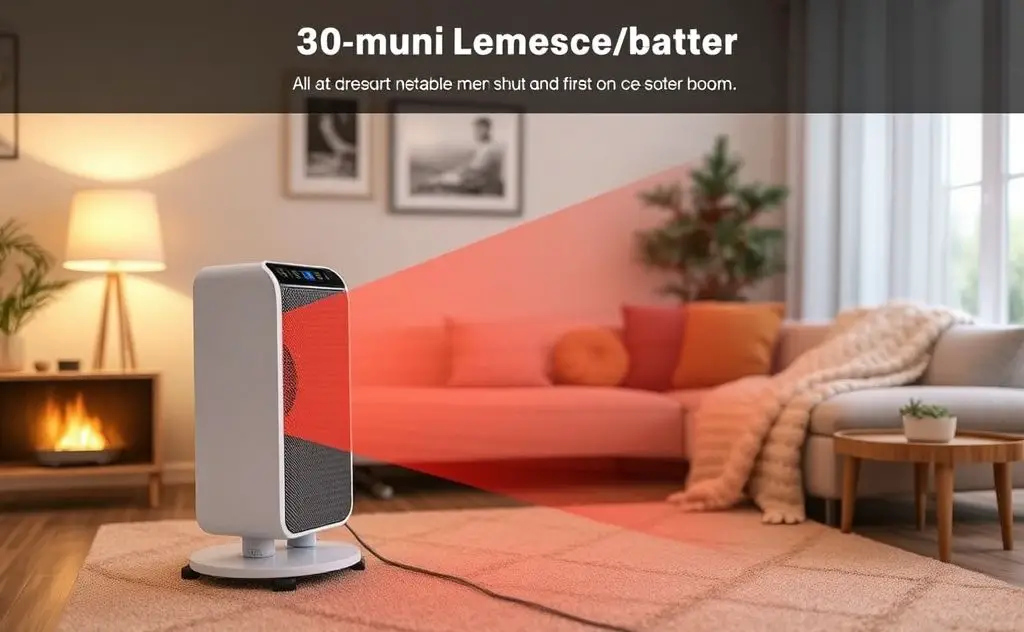Many modern heaters are designed with safety features that allow them to turn off automatically when they reach a certain temperature or if they tip over, ensuring efficient operation and reducing the risk of fire hazards.
Many modern heaters include automatic shutoff features for safety and energy efficiency. Understanding how these mechanisms work helps you choose the right heater and use it properly.

Types of Automatic Shutoff in Heaters
Different heaters use various automatic shutoff systems depending on their design and purpose.
Thermostat-Controlled Shutoff
Most space heaters with thermostats turn off when reaching the set temperature. They cycle on/off to maintain consistent warmth. Oil-filled radiators often include this feature.
Tip-Over Protection
Modern portable heaters have sensors that cut power if tipped over. This prevents fire hazards from direct contact with flammable materials.
Overheat Protection
Internal temperature sensors shut off the heater if components get too hot. This protects against electrical fires and extends device lifespan.
Timer-Based Shutoff
Programmable heaters let you set operating durations. Some automatically turn off after 1-12 hours of continuous use as a safety precaution.

Heater Types and Their Auto-Off Features
| Heater Type | Common Auto-Off Features |
|---|---|
| Oil-filled radiators | Thermostat, overheat protection |
| Ceramic heaters | Tip-over, overheat, timer |
| Infrared heaters | Tip-over, timer |
| Fan heaters | Tip-over, overheat |
Safety Considerations for Continuous Operation
While many heaters can run continuously, safety precautions are essential:
- Never place heaters near flammable materials
- Maintain at least 3 feet clearance on all sides
- Use on stable, level surfaces only
- Plug directly into wall outlets (no extension cords)
According to Plumb Nation, oil-filled radiators are among the safest options for overnight use due to their automatic shutoff features.
Energy Efficiency and Auto-Off Features
Automatic shutoff helps conserve energy by:
- Preventing unnecessary operation when desired temperature is reached
- Limiting runtime through timer functions
- Reducing standby power consumption
For maximum efficiency, consider programmable space heaters that adapt to your schedule and temperature preferences.
Troubleshooting Auto-Off Issues
If your heater isn’t turning off automatically:
- Check thermostat settings (may be set too high)
- Inspect for dust buildup blocking sensors
- Verify power supply stability
- Consult manufacturer guidelines for reset procedures
As noted in Steam Community discussions, some heaters may appear “on” while actually being in standby mode with automatic shutoff engaged.
Smart Heaters and Advanced Automation
Modern smart heaters offer enhanced automatic features:
- Wi-Fi connectivity for remote control
- Motion sensors to activate when people are present
- Learning algorithms that adapt to usage patterns
- Integration with home automation systems
These technologies provide both convenience and energy savings while maintaining safety through automatic shutoff capabilities.
